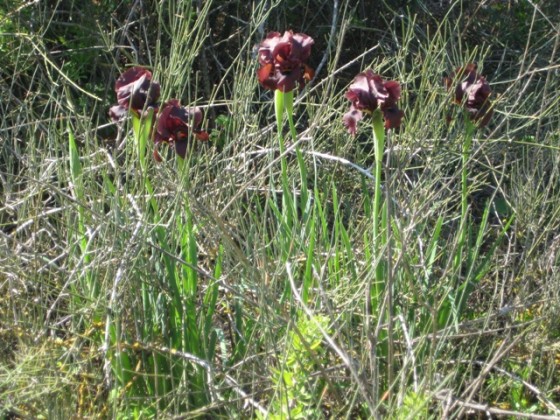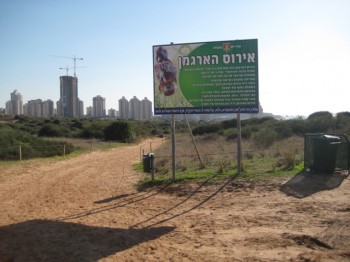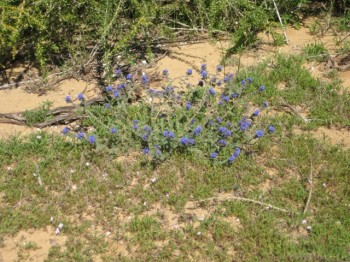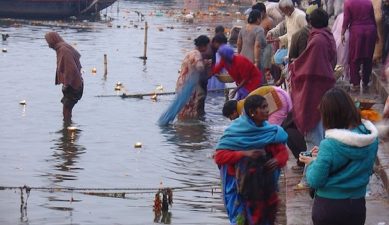 The Argaman Iris in all its glory awaits you this winter
The Argaman Iris in all its glory awaits you this winter
Further to my article in the Jerusalem Post about open places in Netanya being squeezed out by mega housing projects, this writer decided to pay a return visit to one of the nature reserves, the Argaman Iris Reserve, located in southern Netanya next to the ongoing Ir Yamim development project. The iris reserve contains a variety of indigenous wild flowers, most notably the wild purple or Argaman iris.
Found in only a few parts of Israel, including small areas in southern Netanya, this perennial plant blossoms only during a 2 to 3 week period from mid February to early March. The iris reserve is confined to a site of around 100 acres, and bordered on the east by the construction projects and on the west by what used to be the city’s garbage dump, until it was relocated elsewhere.
“Neither the Argaman Iris site nor the Winter Pond (about 3/4 of a kilometer north of the iris reserve) are protected nature sites,” says Alon Rothschild, in charge of Environmental Protection and Natural Sites in the Central Region for the Society for the Protection of Nature in Israel (SPNI).
 Entrance to iris preserve: note construction in background
Entrance to iris preserve: note construction in background
Rothschild, who was interviewed for the JPost article, says that a hotel project was originally planned to be built on part of the area now allocated for the Argaman iris reserve, but it was moved elsewhere due to lobbying efforts from the SPNI and other “green” organizations.
The entrance to the reserve is off the main coastal road heading out of Netanya, and parking lots are located on either side of the reserve. Signs at the reserve’s entrance tells visitors the various kinds of plant and animal life located in the reserve, much of which covered the entire area now being developed by the Ir Yamim project, which also will include a galleria-type shopping mall.
Trails with rope barriers are designed to allow visitors to the reserve to observe the irises and other plant life without causing any damage to fragile flowers like the irises. This doesn’t always work out according to plan however, as people often want to touch or be photographed by these lovely flowers.
Another problem is “invading” plant life that competes with the irises and other native species for space. “We have to remove these invasive plants from the site so the natural species can thrive,” says Rothschild. Fortunately, on my visit to the site on a particularly lovely Friday morning in mid February, the irises were “cooperating” and were starting to bloom. Other native flowers and flowering plants were blooming too, and the buzzing of pollen gathering bees could be heard everywhere. 
Not just irises, but other beauty too
There may be hope yet for the iris reserve and other nature sites in this city of 208,000, as the Netanya Municipality is becoming more aware of the need to preserve these “green spaces” for future generations.
According to Sara Gazit, Parks and Infrastructure Architect for the Municipality, and who was also interviewed for the Jpost article: “Until 10 years ago, we at the municipality did not have ecologists to advise us on what needs to be done to maintain these natural sites. Since then, we have conducted surveys and made a lot of changes to area building plans in order to take the ecological situation into consideration in these natural sites.”
Read more on environmental issues affecting nature sites in Israel:
Is Jerusalem Stone Under Threat?
Ancient Ceasarea Needs Every Grain of Sand



